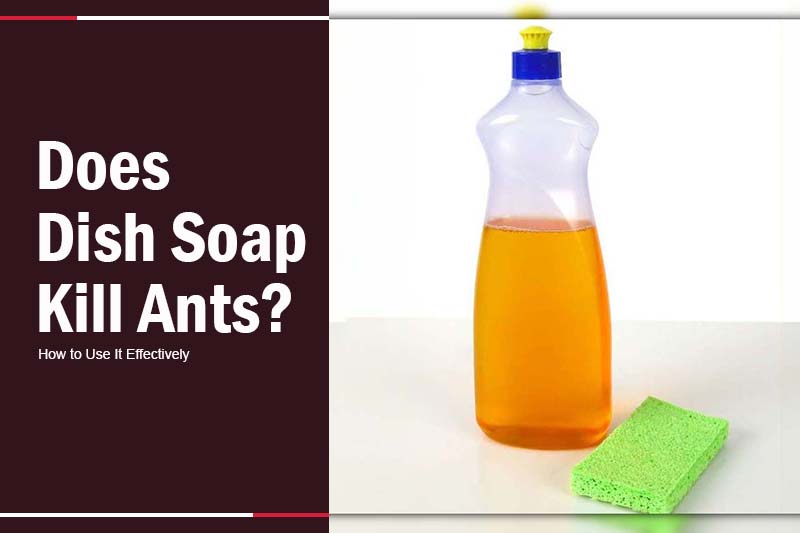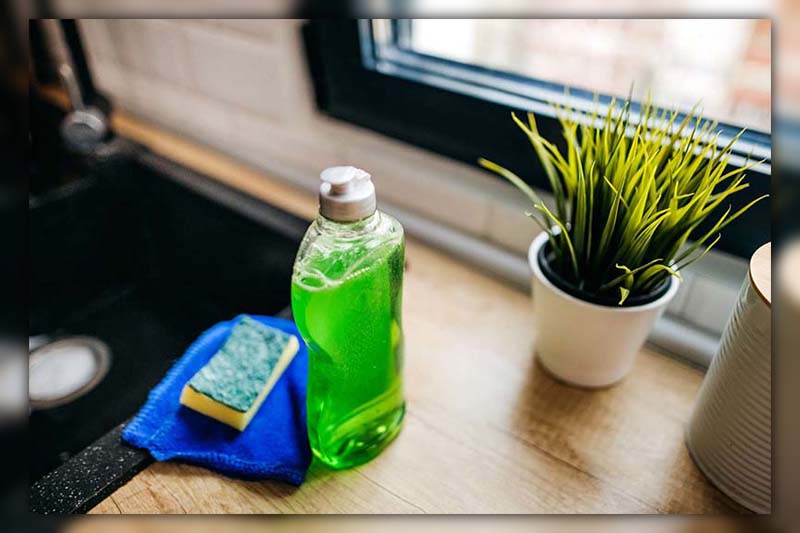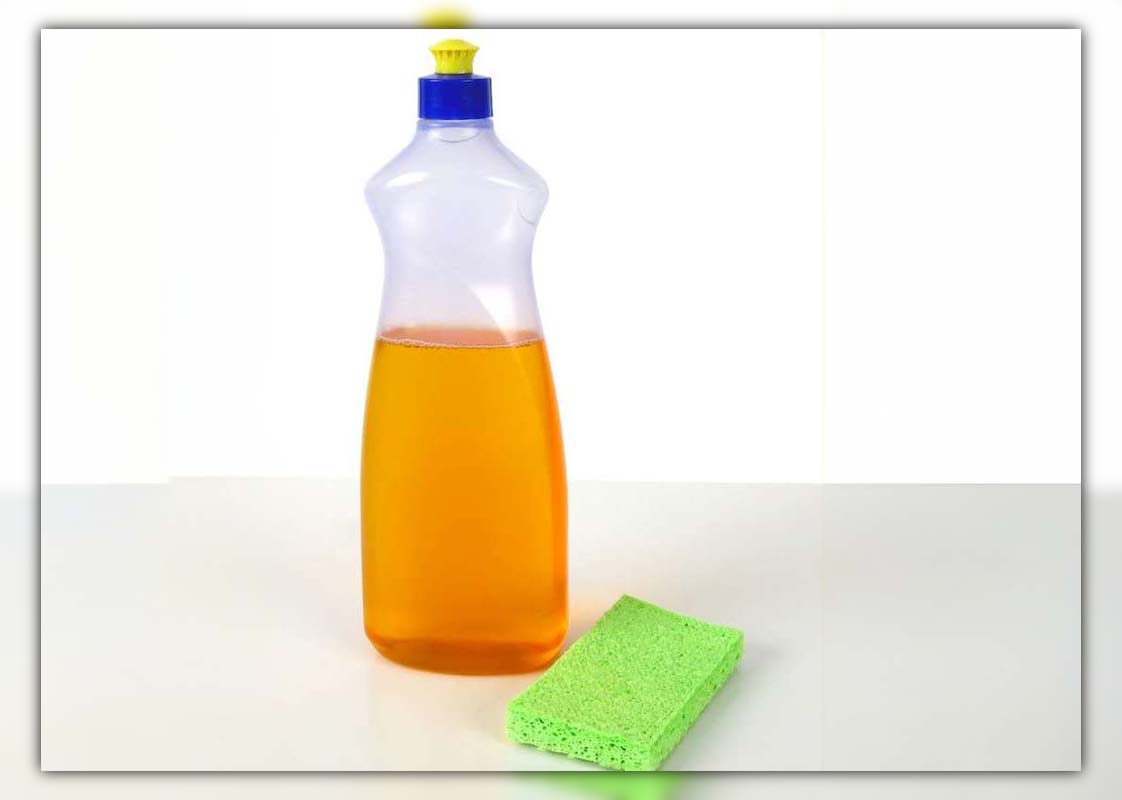In this blog, you will learn the answer to the question “Does Dish Soap Kill Ants?” and how to use it to make your own ant-killing solution.

1. Does Dish soap kill Ants?
Dish soap indeed kills ants. The ingredients in dish soap, particularly the detergents, are toxic to ants and other small insects.
It works by breaking down the protective layers of the ant’s exoskeleton, which results in dehydration and ultimately death for the insect.
2. How to get rid of ants with Dish soap?
One way is to mix dish soap with water and vinegar in a spray bottle or a bucket.
The ratio can vary, but a common one is 4 tablespoons of dish soap, half a cup of vinegar, and 6 cups of hot water. Spray or pour the solution on ants or their nests.
The dish soap will bind to their exoskeletons and suffocate them, while the vinegar will eliminate their odors. Repeat this regularly until the ants are gone.
Another way is to add 2 cups of Dawn dish soap to 4 liters of water at room temperature and use it to wipe the ant-infested areas.
- When indoors, use a spray bottle to spread the solution on them.
- When outdoors, you can pour the mixture on ants in the ground. Sprinkle the solution on ants or pour it into an ant hill to kill them instantly.
3. How long does It take for Dish Soap to kill ants?
The time it takes for dish soap to kill ants depends on several factors, such as the concentration of the soap solution, the type of ant, and the temperature of the water used.
However, typically, a direct application of soapy water can kill ants within a few minutes. One source specifically states that it takes about 15 minutes for dish soap to kill ants
4. Does soapy water kill ants on plants?
Yes, soapy water can kill ants on plants by suffocating them and disrupting their communication.
However, you need to be careful about the concentration and type of soap you use, as some soaps can be harmful to plants.
5. Dish soap for ants on wooden floors
Ant nests on wooden floors, patios, or verandas should not be soaked in hot water and dishwashing soap.
This can cause soaking and damage to the wood, and replacement may be economically involved.
6. Can Dish Soap kill Ant Eggs?
The only way to kill ant eggs with dish soap is to mix it with boiling water and pour it into their nests. This washes down into the nest and dissolves the eggs on contact.
FAQs
Do ants hate Dish Soap?
Yes, ants are not fond of dish soap. It disrupts their trail pheromones, which they use to communicate with each other. This makes it difficult for them to move and find food sources.
How much dawn and water to kill ants?
A commonly recommended proportion is a mix of 2 cups of Dawn dish soap to 4 liters of water. If you’re pouring the solution into an anthill, make sure to use enough to penetrate the entire nest.
Does dish soap kill ants outside?
Dish soap is effective against ants both indoors and outdoors. When used outside, the soap can disrupt ant trails and pheromone signals, making it an efficient deterrent.
Conclusion
You have learned how dish soap kill ants and how to use it to make your own ant-killing solution.
If you want to learn more about how to deal with other pests, you can check out more blogs from Pestweek.

Calina Mabel has over 15 years of experience in the field of journalism and communications. Currently, Calina Mabel is the Content Writer for categories such as Cockroach, Ants, Bed Bugs, Mosquito, Rodent, Termite, and Flies on Pestweek.com. She aims to build content for these categories with a focus on providing valuable and accessible information to readers, in order to create the world’s largest knowledge community about Pests.
All content written by Calina Mabel has been reviewed by Emily Carter.



